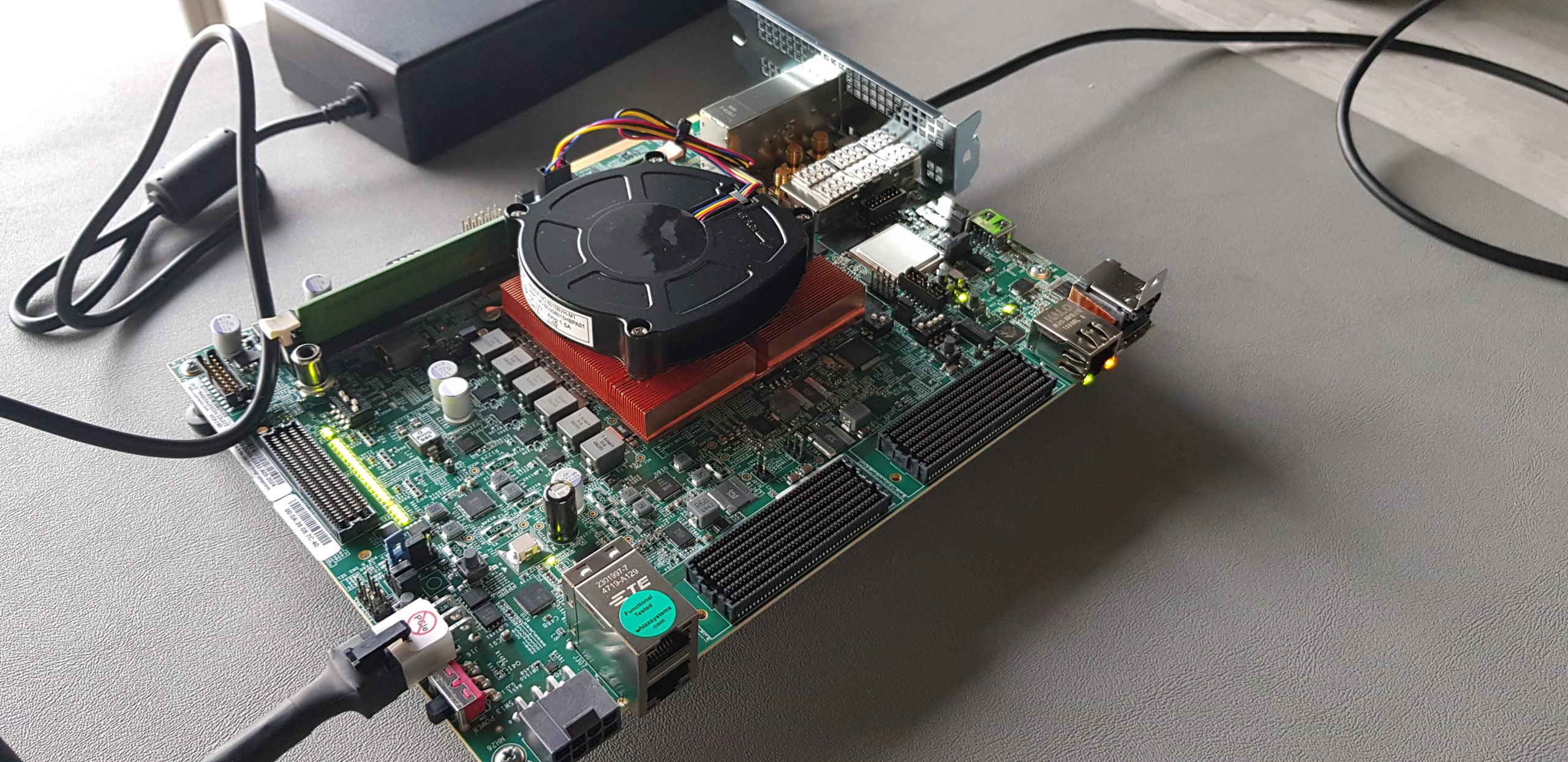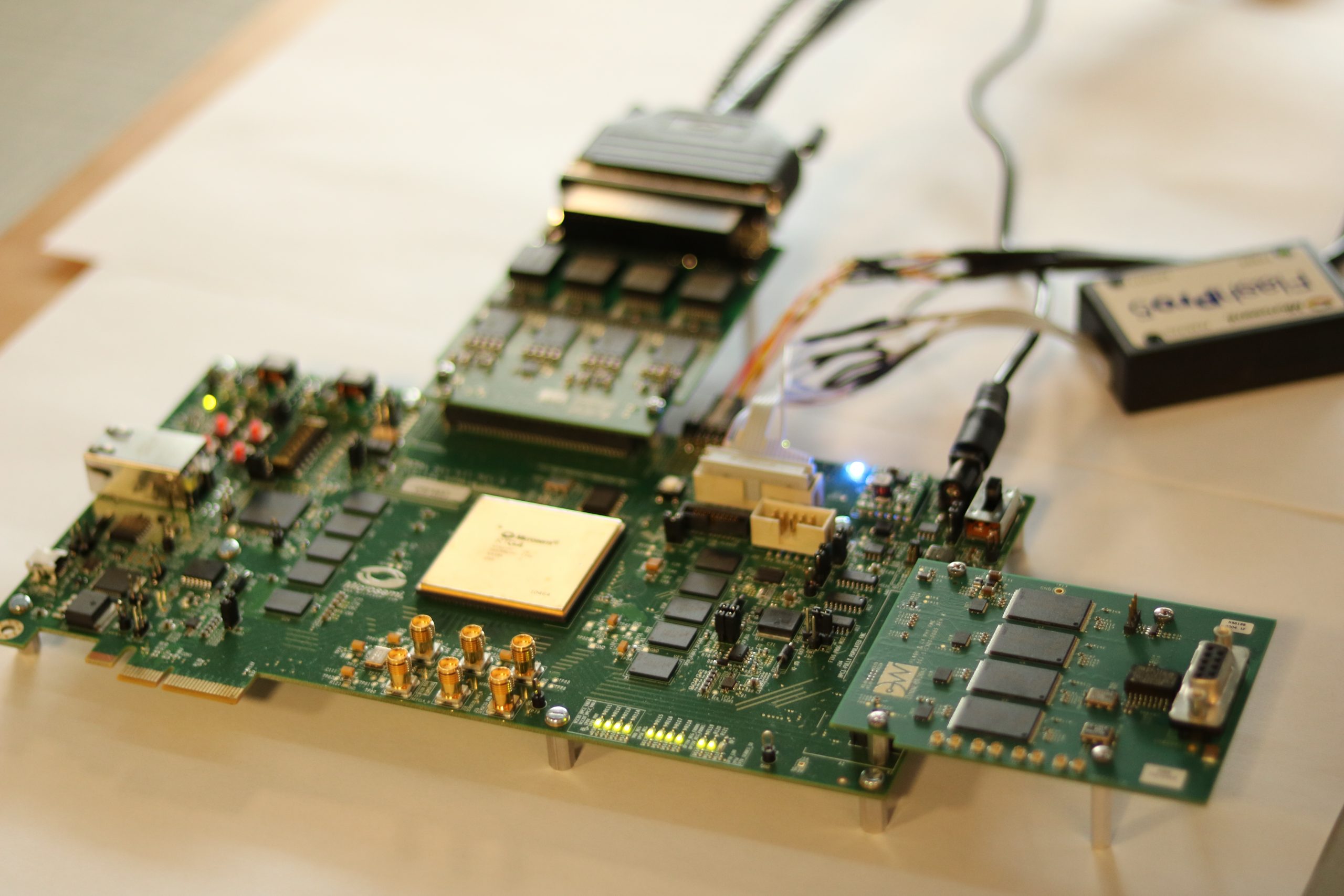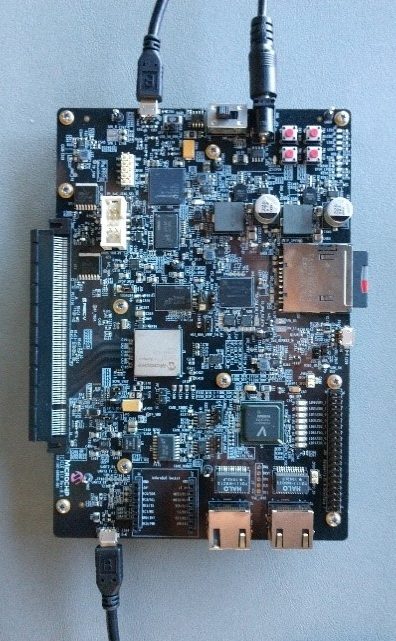
Technology can change quite a bit in 20 years. During that time, we’ve seen a lot of different platforms and tools come and go, a lot of engineers join the team to create innovative solutions with them, and even more companies delight their customers with those solutions.
But as the saying goes, the more things change the more things stay the same. In this case, what stays the same is heard in interviews and initial design meetings. It’s a single question that, let’s be honest, we’re always happy to answer.
“What kind of hardware do you work with?”
Lately, the short answer is the Xilinx Versal board, RFSoC and MPSoC, the Microchip PolarFire SoC Icicle Kit, RTG4 Development Kit, and Intel’s Stratix10. But the longer answer is even more exciting:

FPGAs can accelerate algorithms through parallelization in programmable logic, but developing these systems comes with a steep learning curve. It’s not a specialty that many software developers have historically pursued. The Versal architecture helps developers surmount the initial challenge, making use of adaptable software libraries that can facilitate integration with modern machine learning applications like TensorFlow.
Among other target applications, ACAP technology is ideal for:
A Versal board arrived at DornerWorks in August 2020. Our engineers have since been exploring the portability potential of the platform, and the effort required to run software components that may be built for other targets.

A leading aerospace company decided on DornerWorks space conformant multi-layer Ethernet switch, utilizing Microchip radiation hardened RTG4 FPGAs, for one of its products to improve the quality of life for space travelers.
DornerWorks’ FPGA team guided the company to direct cut-through routing within the port logic of the design and developed softcore processors to define and maintain the logic-based routing tables that exist on each incoming and outgoing port of DornerWorks multi-layer Ethernet switch. The RTG4 devices required deep FPGA and hardware design skill sets rather than a strict software approach.
DornerWorks engineers worked directly with the Microchip to stand-up and debug these relatively new chips as well as to properly implement logic features that provide radiation tolerance and mitigation. We also collaborated with Microchip on the instantiation and debugging of multiple RISC-V softcores in programmable logic.

The new PolarFire SoC from Microchip is the first commercially-available multi-core FPGA System-on-Chip that can support these applications on open source Linux and the RISC-V architecture. It enables the determinism needed for real-time hardware applications, while living up to the interoperability promise of RISC-V. The Icicle Kit is putting PolarFire power into the hands of developers who are building them. And the seL4 microkernel will provide a trusted base for their most critical software components.
DornerWorks Embedded Engineer Jesse Millwood previously used Antmicro’s Renode emulator to port the seL4 microkernel to RISC-V architecture. He has since used Renode to port seL4 to the HiFive unleashed expansion board, which uses the PolarFire FPGAs. When the PolarFire SoC Icicle Kit arrived at DornerWorks, Millwood ran seL4test on the board and, after writing new UART and timer drivers, verified that the port was successful.
Soon, with the work of seL4 developer Data61, the PolarFire SoC will be able to support seL4’s formal verification, making the most of the microkernel’s enhanced security potential, opening up further opportunities for seL4 and SoC engineers.
On DornerWorks campus you will find FPGA engineers, software and hardware engineers, engineers that work on seL4-based and virtualized systems currently being used by the US Navy, and engineers that know every square inch of industrial IoT washers and dryers that have helped Dexter Laundry corner their market. In many cases they are called on to work together, especially when it involves leading edge technologies that can change the world.
Companies come to DornerWorks when they want to turn their ideas into reality. That requires talented, creative, and understanding engineers who can work with these technologies.
If that sounds like you, visit our careers page and send us your resume. The next exciting development board that arrives at DornerWorks could change lives for the better with your expertise.